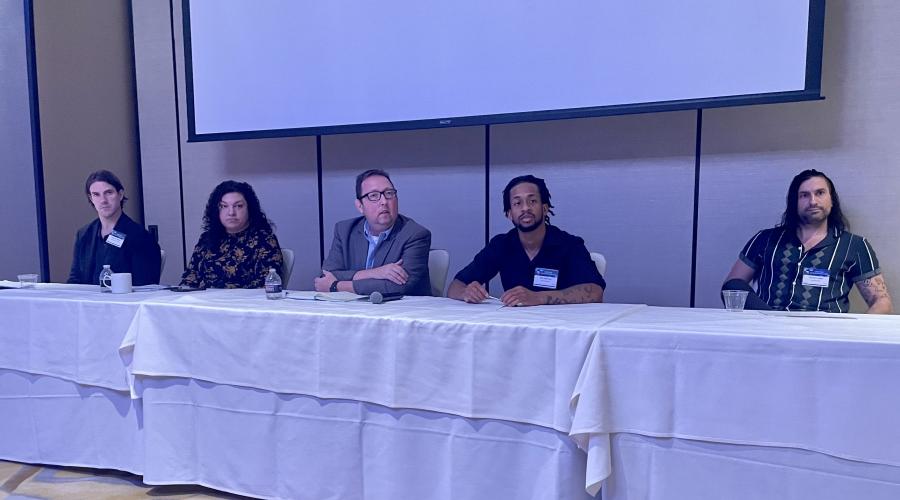
Unlocking Talent Pools: The Impact of Traditional Hiring Practices on Justice-Impacted Job Candidates
Unlocking Talent Pools: The Impact of Traditional Hiring Practices on Justice-Impacted Job Candidates
Traditional hiring practices are insufficient, but there is an alternative; this was the mission which brought together thought leaders from ILR and Jobs for the Future (JFF) at the 75th Labor and Employment Relations Association (LERA) conference earlier this month in Detroit, Michigan.
Led by moderator Ariel C. Avgar, the speakers – Brandi Mandato, Dr. Matthew Saleh, Timothy McNutt, and Jodi Anderson Jr. – discussed inclusive hiring practices, highlighting the importance of embracing alternative models and tools to assess candidates with criminal records.
Challenges in Traditional Hiring Practices
What opportunities are employers missing out on by leaning too heavily on online applications, resume screenings, and criminal background checks? These traditional hiring practices shrink the talent pool and exclude qualified nontraditional candidates, particularly those with criminal records. Timothy McNutt, Esq., Director of Cornell ILR’s Criminal Justice and Employment Initiative, drew on his extensive background in criminal law, litigation, and policy to issue a clear call to action: adopt alternative approaches to provide opportunities for justice-impacted workers in the face of a labor shortage.
Promoting Inclusive Hiring
Brandi Mandato used her nearly 20 years of experience in economic and workforce justice to reinforce the importance of creating equitable employment opportunities and promoting access to work for justice-impacted individuals. Mandato is senior director at JFF, a national nonprofit transforming education and workforce systems to achieve equitable economic advancement for all. Previously holding senior leadership positions at the City University of New York (CUNY), the Doe Fund, and the San Francisco branch of Jewish Vocational Service (JVS), Mandato brought an invaluable perspective to the dynamic ILR workshop, and echoed the call to action; Employers need to implement alternative models, tools, and cultural competencies to assess candidates beyond their criminal history.
Drawing Connections to Marginalized Workers
But the issue goes even deeper. Dr. Matthew Saleh, director of research at ILR’s Criminal Justice and Employment Initiative (CJEI) and a senior research associate at the Yang-Tan Institute on Employment and Disability (YTI), recognized the commonalities between justice-impacted workers and other marginalized individuals. The need to understand the experiences of marginalized workers allows us to draw connections to broader themes of access to work, equity, and economic development. Using his research experience investigating career pathways for youth with disabilities and barriers to employment, Saleh noted that forward thinking employers are sure to consider the potential and resilience of justice-impacted individuals when reintegrating them into the workforce.
Forward Looking
Looking to the future, Jodi Anderson Jr. - director of technological innovation at Cornell ILR’s Criminal Justice and Employment Initiative - shed light on the role of technology, academia, and practitioners in shaping the future of work for the most vulnerable workers as a model to unlock opportunity for other groups. Clearly, modern workforce questions require scaleable, future-driven answers, and as echoed by the ILR and JFF workshop, it is only by embracing alternative models and tools that employers can tap into diverse talent and foster equity and economic development for all.
